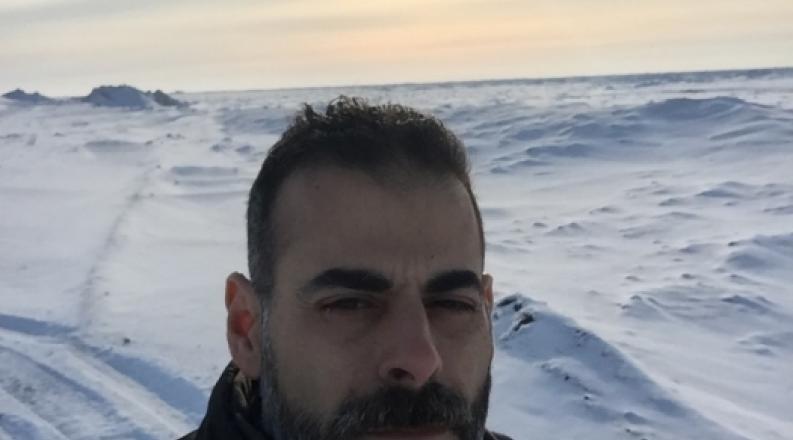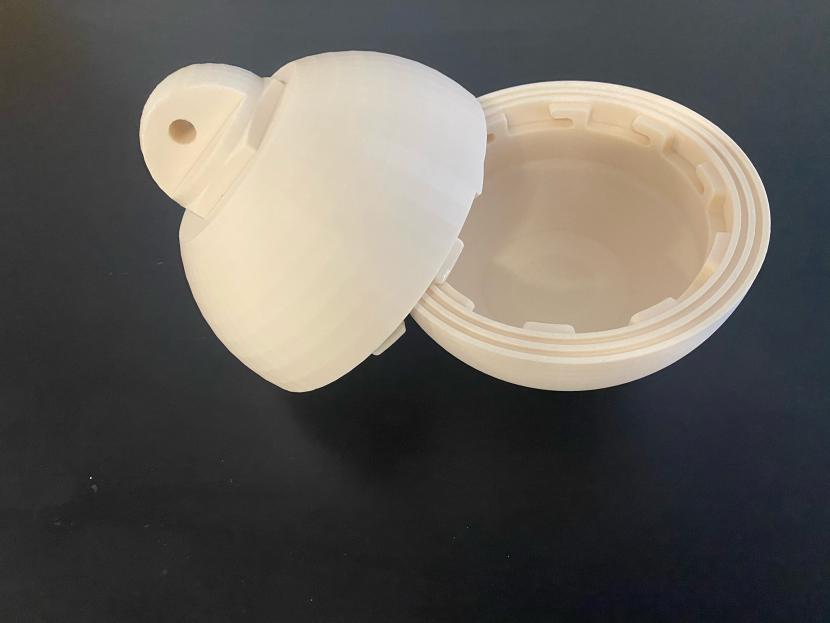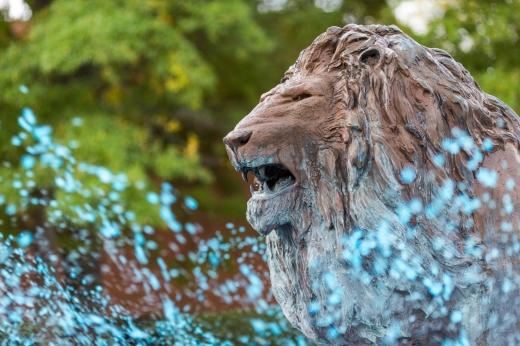By Joe Garvey
Old Dominion University's Petros Katsioloudis is heading back to Alaska this month as part of a project that aims to make climate change curriculum more accessible for K-16 education.
Katsioloudis, professor and chair of STEM education and professional studies in the Darden College of Education and Professional Studies and undergraduate program director of the industrial technology program, will be in Barrow, Alaska, from April 12 to 16 to test up to four drifter buoys at a National Oceanic and Atmospheric Administration (NOAA) research testing center. Over seven months, researchers will examine the efficiency of the buoys' housing.
"Will this battery die in a week? Will this battery last for three months as it's intended?" asks Katsioloudis, who added that researchers also have been throwing them from helicopters and putting them in minus 80-degree freezers. "Will it leak? Is it waterproof? Is it impact-proof? Will it transmit with snow on top of it? The buoys have to be subjected to the Arctic conditions to test their durability and viability before being permanently deployed."
The buoys were developed in conjunction with researchers from East Carolina University and the University of Maryland. Katsioloudis and ECU's Daniel Lee Dickerson led the efforts to develop the housing using 3-D printing technology; Maryland researcher Cy Keener created the electronics inside the device. ODU occupational and technical studies graduate student Timothy Ray Edmondson also contributed substantial efforts toward the development of the housing. ECU electrical engineering student Joseph Cole Dickerson worked on the project and helped develop the coding.
But the project has a much larger goal.
The expedition supports the newly founded Extreme Education Experience Consortium (E3c ). This initiative, led by ODU and ECU, is developing a climate change curriculum and a visualization platform aimed at students of all ages who are laypeople when it comes to ther science of climate change and sea level rise.
ODU researchers have made several trips to Alaska. The most recent was in 2019, when Katsioloudis and Victoria Hill, assistant professor in the Department of Ocean, Earth and Atmospheric Sciences in the College of Sciences, launched Warming and irRadiance Measurement (WARM) buoys in the Arctic Ocean. But those buoys are much larger and collect live data for scientific purposes.
"We're creating an education version that collects similar data but in a much smaller scale that is more appropriate for K-16 students to understand and manipulate for educational purposes," Katsioloudis said. "Our platform is much simpler because not every individual has a scientific background and knows how to interpret data to make sense of it and draw conclusions. We are literally creating visuals that are more appropriate to young-student settings."
If the testing of the housing is successful, Katsioloudis hopes to deploy the buoys in the Arctic this summer and the Antarctic next spring. The goal is to deploy 10 to 15 annually.
Katsioloudis said the project is being funded by the the Joshua and Elizabeth Darden Foundation. He also credited Tammi Dice, interim dean of the Darden College, and Andy Casiello, associate vice president of distance learning, for their support. Distance learning is providing a videographer for the trip. Also, the Slover Library in downtown Norfolk has been a supporter of the efforts.
"Truly, my mission with this consortium, for now and the years to come, is to provide this educational experience for K-16 students that will allow them to make a difference for the environment," Katsioloudis said.







